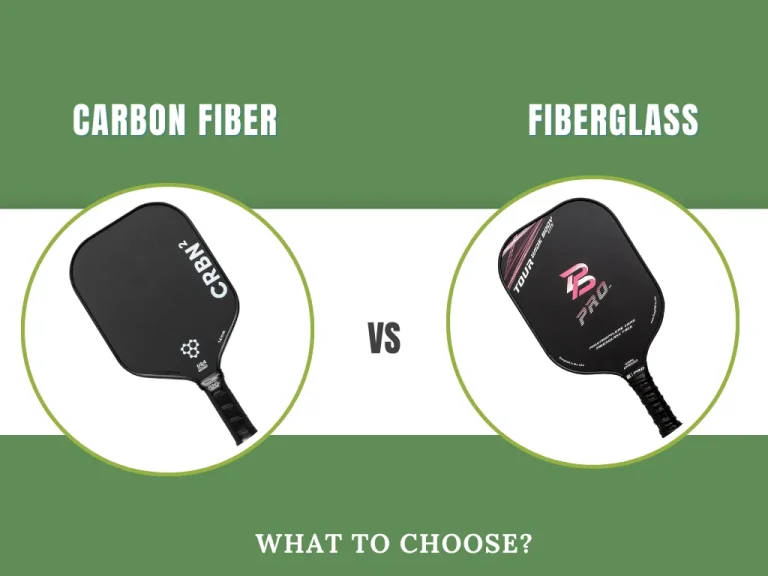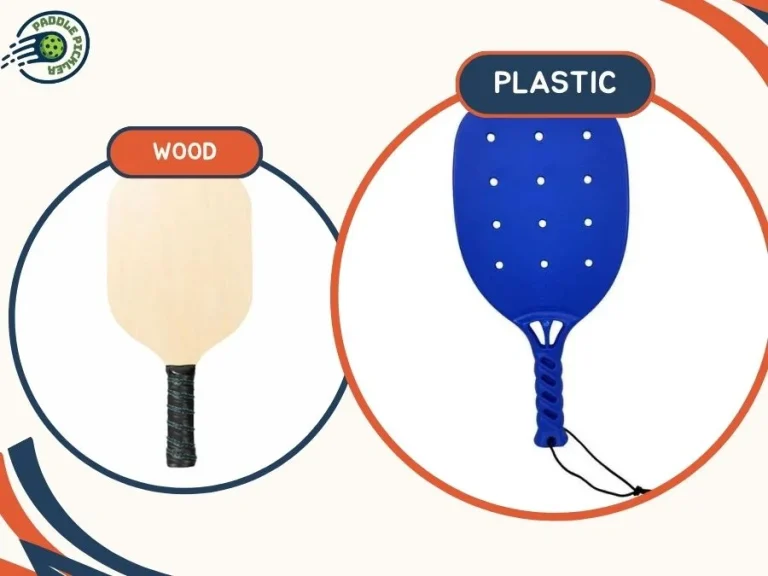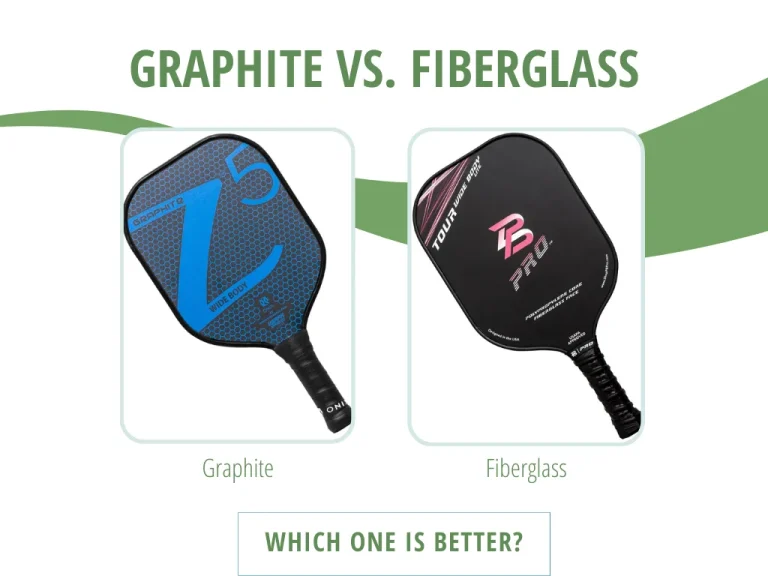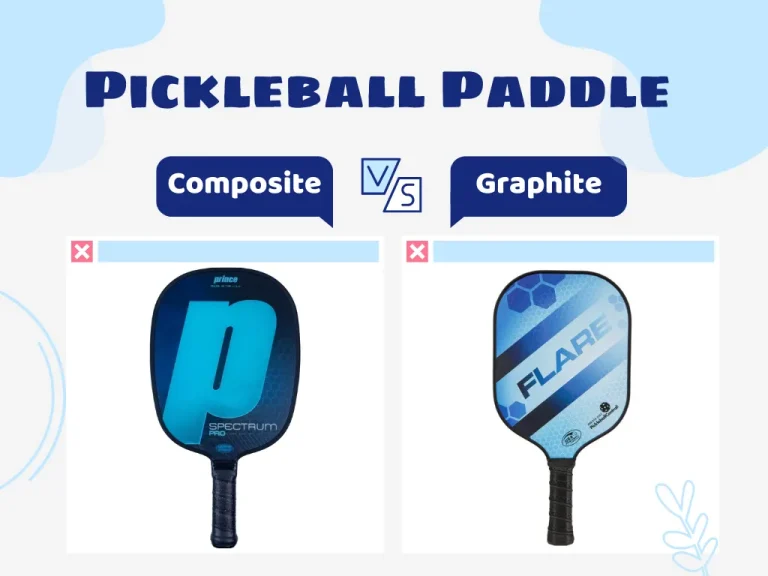Wood and graphite pickleball paddles are two popular materials choice for pickleball players, each catering to different preferences and playing styles. Choosing the right paddle depends on various factors, including player experience, durability, weight or cost. This comparison explores the key differences between wood and graphite paddles, helping players make an informed decision based on their individual requirements.
Key Takeaways
- Graphite paddles are good at precision and control, making them ideal for advanced players who seek accuracy and enhanced spin. Wood paddles are more powerful but less precise, suitable for beginners and casual players who prioritize durability.
- Wood paddles are highly durable, making them a long-term investment. Graphite paddles have a shorter lifespan with professionals needing to replace them more frequently.
- The best for beginners and casual players is wood paddles due to their affordability and durability. Graphite paddles are suited for advanced players who require high performance and precision.
Table of Differences: Wood vs. Graphite Pickleball Paddles
| Factor | Wood Paddle | Graphite Paddle |
| Performance | Powerful but less precise | Precise and good for spin |
| Weight | Heavier | Lighter |
| Durability | Highly durable | Less durable |
| Cost | Budget-friendly | Higher cost for advanced features |
| Skill Level | Ideal for beginners and casual players | Suited for advanced players |
| Sound | Louder | Quieter |
| Pros | – Durable and sturdy – Cost-effective – Long lifespan – Good for beginners | – Lightweight – Enhanced control and precision – Better for spin shots – Balanced power and control – Lifespan of 1-3 years |
| Cons | – Heavier – Less control and precision – Can cause muscle fatigue | – Higher cost – Susceptible to surface abrasion |
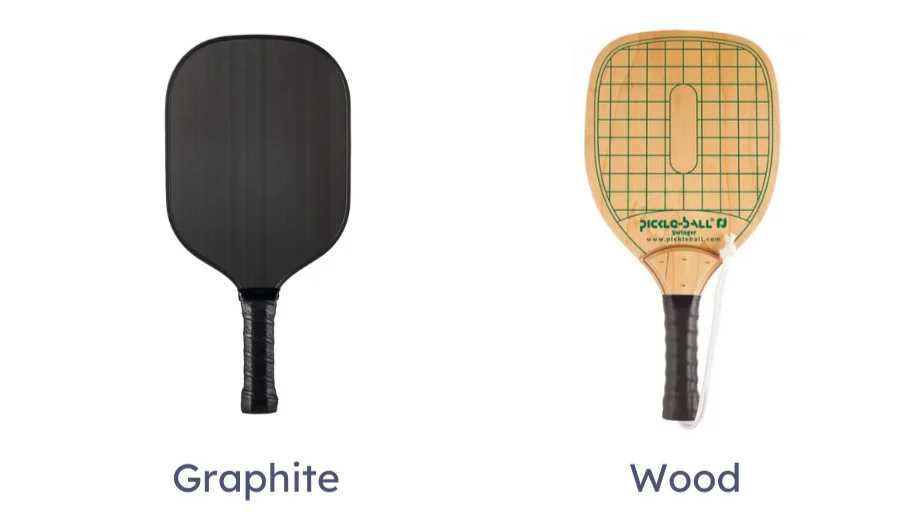
Graphite for Precision. Wood for Durability
If you prefer a lighter and more precise option, a graphite pickleball paddle is more suitable than a wooden one.
Known for their lightweight design and accuracy, graphite pickleball paddles allow players to control their shots with precision. They’re perfect for those who want a modern paddle that offers both power and finesse in their gameplay.
On the other hand, a wood pickleball paddle is sturdier and more durable than graphite paddles, making them ideal for players who prioritize reliability. Wood paddles provide a solid feel and are well-suited for delivering strong, consistent shots.
Durability and Maintenance
Wood paddles are strong and can handle heavy use better than graphite paddles. They also stay in good shape longer, even with regular play.
They are heavier, so they provide more power when hitting the ball, making them suitable for long shots that require a lot of force. However, this weight can also be a disadvantage, as it makes controlling shots that require quick reflexes more difficult, leading to less accuracy.
In terms of durability, wood paddles are highly durable and sturdy, often lasting several years with proper care. They typically endure from 3 to 5 years, making them a long-term investment despite their lower cost. However, to maintain their longevity, it is crucial to avoid chipping or scratching the edges and exposing them to moisture. These factors can negatively affect their performance and durability over time.
As for graphite paddles, they are lighter in weight, making them suitable for shots that require agility and speed. This type of paddle can balance power and control very well. Moreover, graphite paddles help increase your ability to perform spin shots and improve accuracy when hitting the ball.
Coming up with durability, graphite paddles are susceptible to surface abrasion if subjected to strong force. They generally have a lifespan of 1 to 3 years, depending on usage and care. For professional players who train and play daily, paddles may last between 6 months to a year. Recreational players who use their paddles less frequently can expect them to last closer to 2 to 3 years.
Weight and Handling
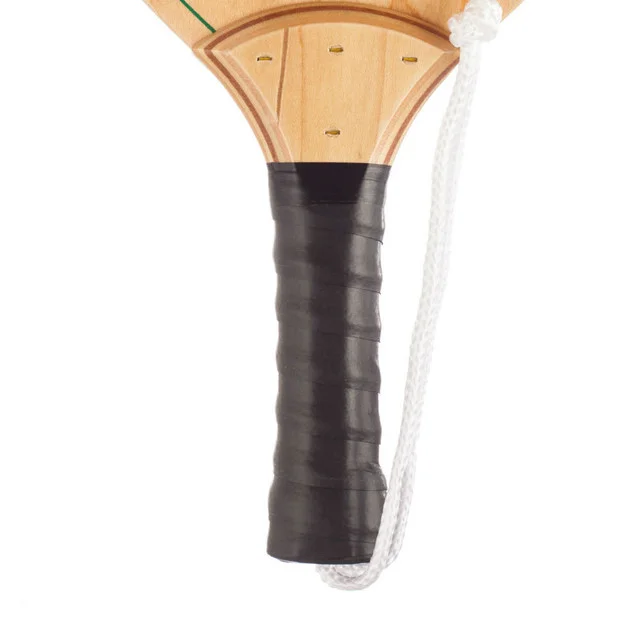
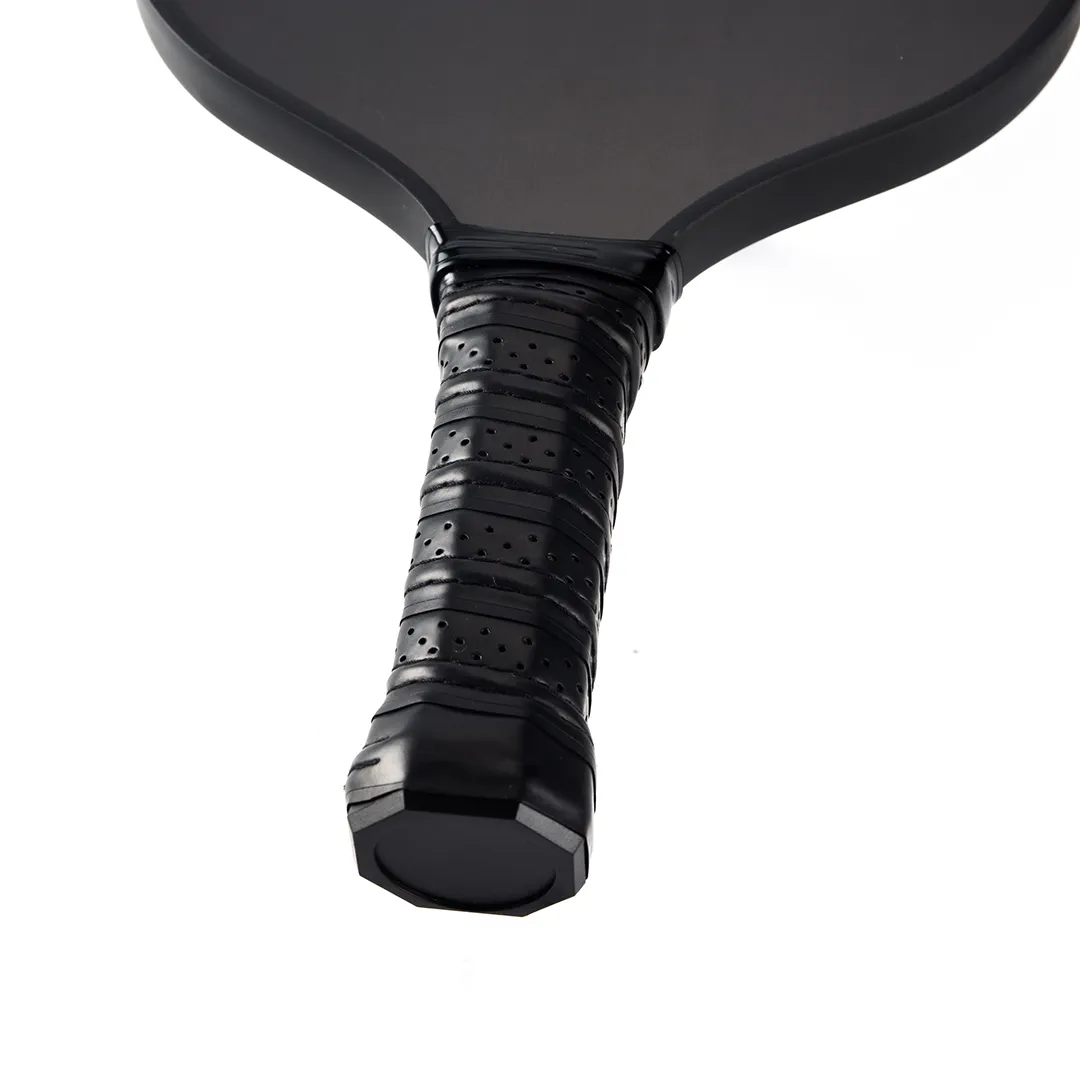
Come up with weight, wooden paddles often weigh above 9 ounces (10-12 ounces). During play, the weight of wooden paddles can easily make players tire faster and cause muscle pain because the arm has to use more force to swing the paddle effectively. This weight leads to slower response times when hitting. Therefore, for shots that require speed and accuracy, wooden paddles can be difficult to manage.
Meanwhile, graphite paddles are definitely lighter, usually weighing 6-9 ounces. So, players find it easier to control and react faster and more effectively to fast shots. The lighter design of graphite paddles helps reduce pressure on the arm, lowering the risk of fatigue and injury even during long matches. If you participate in long tournaments, it will enhance your ability to make quick movements and maintain control.
Here is a brief comparison between wood and graphite material:
| Weight | Wood Paddle | Graphite Paddle |
|---|---|---|
| Lightweight | Uncommon for wood paddles | 7-8 ounce Ex: Engage Encore Lite, Onix Graphite Z5 |
| Midweight | 9-10 ounce Ex: Rally Meister Wood Pickleball Paddle (Maple) | 8-9.5 ounce Ex: Selkirk AMPED S2, Paddletek Bantam EX-L |
| Heavyweight | 10-12+ ounce Ex: Pickleball, Inc. Diller Wood Paddle (Oak) | 9.5-11 ounce Ex: Gamma RZR, PROKENNEX Kinetic Pro |
Cost and Value Comparison
Wood paddles are the budget-friendly choice, typically costing between $10 and $30. Made from materials like plywood or composite wood, they offer simpler designs and are ideal for beginners or casual players.
Graphite paddles, on the other hand, come with a higher price tag, usually ranging from $50 to $150 or more. Constructed from high-quality graphite, they are lightweight, durable, and designed for serious players looking for enhanced performance. Features like edge guards and cushioned grips make them a top choice for those who play regularly.
Player Preferences and Skill Levels
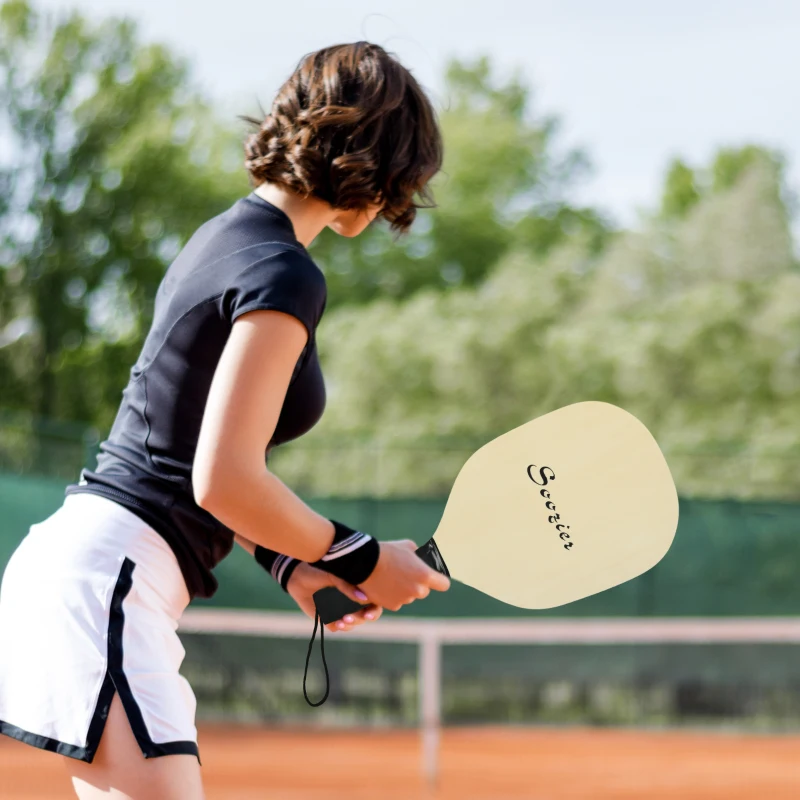
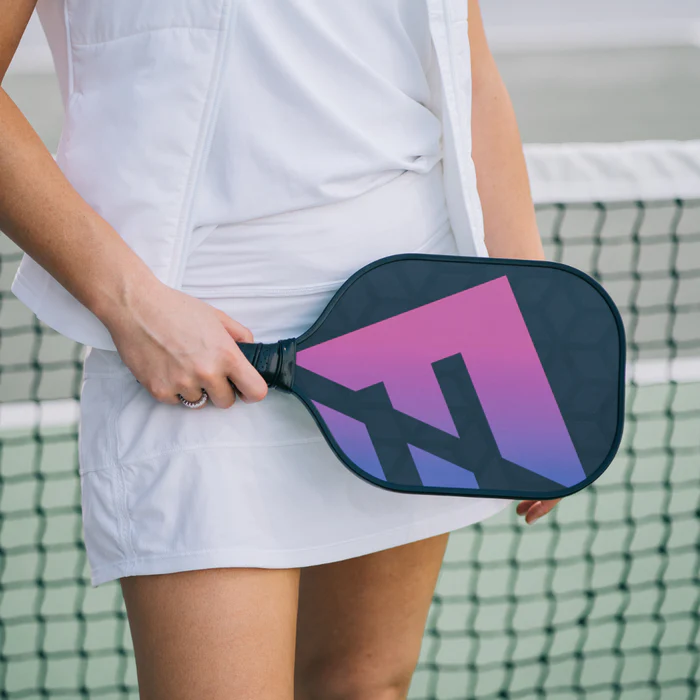
Wood and graphite paddles are suited to different types of players based on their experience and how often they play. Each player will have their own preference.
For beginners, wood paddles are ideal for beginners due to their affordability and durability. These paddles provide a good introduction to the game without a significant investment. They are also a solid choice for casual players who play occasionally and want something cost-effective. The basic design and lower price make wood paddles accessible and practical for those just starting out.
For pro players, graphite paddles are essential due to their advanced features and performance benefits. These paddles combine power and precision, which are crucial for high-level play. Designed to enhance both power and control, graphite paddles meet the demands of competitive players who seek top-quality equipment.
For example, the JOOLA Ben Johns Hyperion CFS 16 Pickle Racquet is made from graphite, providing power, control and a remarkable lightweight. This is the racquet that world number one Ben Johns trusts to solve tournaments.
In Short
Choosing the right pickleball paddle can significantly impact your game. The primary materials used for pickleball paddles are wood and graphite, each offering distinct advantages and disadvantages. Let’s break down the key differences:
- Wooden paddles: Durable, affordable, and provide a solid feel. Ideal for beginners and casual players who prioritize durability and a classic playing experience.
- Graphite paddles: Lightweight, provide excellent control and spin. Ideal for advanced players who seek precision and power.
The best way to choose a paddle is to try out different options and see what feels most comfortable for you.


